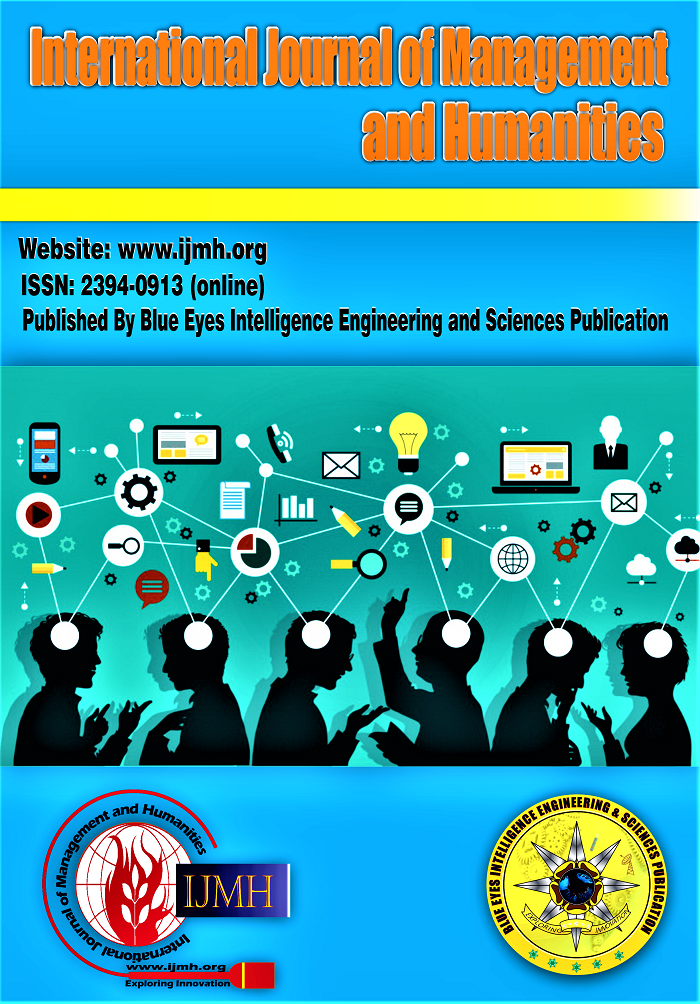Academic Honesty: Essential in Achievement of Educational Goals
Main Article Content
Abstract
The main concept of this research paper is to acquire an efficient understanding of academic honesty. This concept has acquired prominence in higher educational institutions in not only in India, but in other countries of the world as well. When individuals are working on any tasks and assignments, they need to abide by certain laws and rules. When they are working on any types of assignments and projects and are making use of other author’s work, they are supposed to cite those authors. On the other hand, not citing sources is referred to as plagiarism. Plagiarism is referred to academic dishonesty. The students in higher educational institutions within the course of pursuance of Bachelors, masters and doctoral programs need to implement the concept of academic honesty. On the other hand, academic dishonesty is referred to not citing the sources, when utilizing other author’s work. The students are trained that they need to give credit to other individuals, when they are making use of their work. Acquiring an efficient understanding of academic honesty will open the room for students in higher educational institutions to achieve educational goals. Furthermore, they will be able to promote enhancement of their career prospects. Therefore, it is well-understood, academic honesty is essential in achievement of educational goals. The main concepts that are taken into account in this research paper are, the fundamental values of academic honesty, academic honesty policy, and factors highlighting the importance of academic honesty.
Downloads
Article Details
Section
How to Cite
References
Budhwar, K. (2017). The Role of Technology in Education. International Journal of a. Engineering Applied Sciences and Technology, 2(8), 55-57. Retrieved June 29, 2024 from ijeast.com
Carnell, B & Fung, D. (Ed.). (2017). Developing the Higher Education Curriculum. a. Research-based Education in Practice. Retrieved June 29, 2024 from discovery.ucl.ac.uk https://doi.org/10.2307/j.ctt1xhr542
Carpenter, M.E. (2019). Different Evaluation Techniques. Retrieved June 29, 2024 from a. bizfluent.com
Centre for Teaching and Learning. (2020). University of Washington. Retrieved June 29, a. 2024 from Washington.edu
Chapter 3. (n.d.). Reaching the Marginalized. Retrieved June 29, 2024 from unesco.org
Shrivastava, Dr. S. K., & Shrivastava, C. (2024). New Reforms in Indian Higher Education: Rethinking the Education Model. In Indian Journal of Social Science and Literature (Vol. 4, Issue 1, pp. 42–48). https://doi.org/10.54105/ijssl.e1142.04010924
Al-Mahdawi, E. (2022). An Overview on Internationalisation within the United Kingdom Higher Education. In International Journal of Management and Humanities (Vol. 8, Issue 6, pp. 7–11). https://doi.org/10.35940/ijmh.f1423.018622
L. Cardoso, Education, Curriculum and Technology Landmarks: The Renewed Concept of the “‘Classroom of the Future.’” (2019). In International Journal of Innovative Technology and Exploring Engineering (Vol. 9, Issue 1, pp. 4876–4881). https://doi.org/10.35940/ijitee.a4705.119119
A. G. Vadivelan, P. Pandia Rajammal, The Major Issues of English Language Teaching in Rural Areas in India. (2020). In International Journal of Recent Technology and Engineering (Vol. 8, Issue 4S4, pp. 18–20). https://doi.org/10.35940/ijrte.d1007.1284s419
Mulyawan, B., Meyliana, Hidayanto, A. N., & Prabowo, H. (2020). Ontological Base Information System in Higher Education. In International Journal of Engineering and Advanced Technology (Vol. 9, Issue 3, pp. 3762–3767). https://doi.org/10.35940/ijeat.c6429.029320





